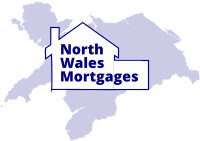Who's who when buying a home?
There are quite a number of people you will have to deal with when you buy a house, here is an explanation of who they are and what they do, so you know exactly what to expect, and when.

By Nick Partington
The Estate Agent
The estate agent sells and markets homes. They will be able to tell your details about the properties they are selling, things like how much the council tax is, are there any ground rent or service charge. They may also show you around properties although more often this is done by the person selling the house, the vendor.
As well as selling properties, the estate agent is responsible for liaising between solicitors, buyers and sellers, with the aim of speeding the buying process along. When you make an offer on a house they will need to ‘report the sale’.
To report the sale, they will need your personal details and evidence of your identity and address, they will also need your solicitors details and may also ask to see evidence that you have the funds to make the purchase, very often asking for a decision in principle from your intended mortgage lender.
• Whilst you can still register your interest with estate agents, these days most people use property websites such as Rightmove and Zoopla and then contact the appropriate agent.
• The estate agent may recommend a particular mortgage lender, surveyor, solicitor or protection provider, but you’re under no obligation to use the one they suggest.
• If you’ve asked for the property you’re buying to be taken off the market once your offer has been accepted, check the estate agent has done this.
The Mortgage Broker
The mortgage broker or mortgage adviser will research the mortgage market on your behalf and help you find the best mortgage deal to suit your needs.
They will ask you about what sort of mortgage you want, they will also ask you about your income and outgoings, as well as your budget, so that they can establish how much you can borrow based on affordability.
Your broker will discuss the different types of mortgage you can choose from, and once you have decided which is the best mortgage for you, they can then guide you through the application process.
• Gathering all your financial information together before you speak to your adviser, such as your income details, your household expenditure, will make it easier for them to advise you which mortgages you might be eligible for.
• Some brokers and advisers may be restricted to a number of lenders, whereas others can recommend deals across the whole mortgage market, giving you access to a much wider choice of deals.
• Mortgage brokers must tell you how much you will have to pay them at the outset. All brokers receive a payment from the lender when the mortgage completes, in addition some brokers charge a fee on top, we don’t charge any additional fees.
The Mortgage Lender
The mortgage lender will lend you the money to buy the house. They will perform due diligence to check who you are, they will check your credit worthiness and they will want to be sure that you can afford the mortgage payments.
Every lender will offer a range of different mortgages, so it’s a good idea to research what they offer, as well as what other lenders can provide, before you choose a particular deal.
• It may be a good idea to get a ‘decision in principle’ before you start your property search. This shows how much they will provisionally be prepared to lend you, you may also be asked for a coy of this by the estate agent.
• Make sure you understand what your monthly payments will be, not just during the initial special deal period but especially what your payments will be when the initial deal finishes.
• Remember to look at the overall cost of a mortgage rather than the ‘headline’ interest rate alone, including any arrangement fees.
The Solicitor or Conveyancer
The solicitor is responsible for carrying out the conveyancing, which means the process of legally transferring the property you are buying from the seller to you.
They will need to conduct various searches before your property purchase can go through.
They will arrange the preparation and exchange of contracts, as well as completion of the deal, which involves handing over the funds required to buy the property.
They will also arrange for the property to be registered with the Land Registry.
The typical fees for doing the actual conveyancing cost from around £850 to £1,500 depending on the purchase price, in addition there will be the search fees and other incidental costs which are likely cost around £300-£400.
• You will be asked to provide the name of your solicitor by the estate agent as soon as your offer is accepted.
• Solicitor searches typically take around two to three weeks to complete, but remember that their results may prompt your solicitor to make further enquiries.
• Once contracts have been exchanged by your solicitor and the seller’s solicitor, you will be committed to buying the property.
Property surveyor or valuer
The surveyor’s role is to report on value and the condition of a property. Your lender will require a surveyor to conduct a basic valuation. However, you can pay for a more in-depth survey if you want one, this may identify any potential structural problems, or issues such as damp or subsidence. (see or guide to Different Types of Surveys).
If the surveyor’s report shows major repairs are required, you could reduce your offer to reflect the cost of carrying the work. Basic surveys typically cost around £250 (depending on the value of the property), but if you want a more comprehensive home buyers report, these can cost upwards of £400.
• Your mortgage lender will only issue a formal mortgage offer once they are happy with the surveyor’s valuation.
• If you are instructing your own surveyor, check they are a member of the Royal Institution of Chartered Surveyors (RICS), and are accepted by your proposed lender.
• Although it might be tempting to cut costs by going for a basic survey, opting for a more in-depth report one could prove a worthwhile investment if it uncovers any major issues with the property you are buying
